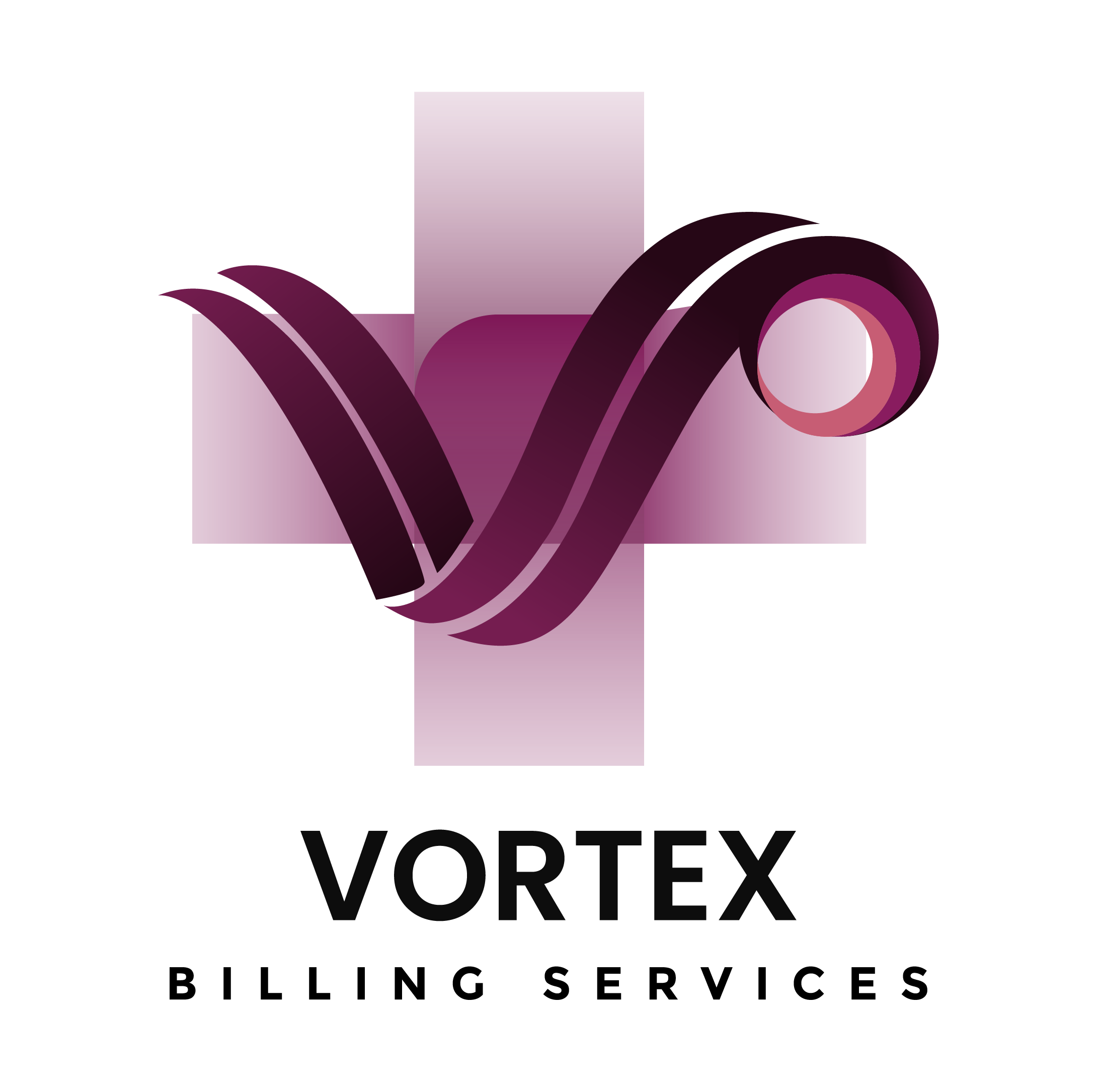Introduction — The Revenue Struggles of U.S. Medical Practices
Running a healthcare clinic in the United States isn’t just about treating patients — it’s about managing the business of medicine. Unfortunately, many Medical Practices are bleeding revenue without realizing it. Why? Because they often lack the systems and strategies needed to manage billing efficiently. In fact, most medical practices lose a significant portion of their income due to common, preventable issues in their revenue cycle. But there’s good news: implementing Revenue Cycle Management (RCM) services can fix these problems fast, turning financial chaos into sustainable profitability.
So, why do Medical Practices struggle with revenue in the first place, and how exactly does RCM come to the rescue? Let’s break it down.
The harsh reality of declining margins
Whether it’s a solo practitioner or a multi-specialty clinic, declining profit margins have become the norm. Rising administrative costs, stricter payer policies, and outdated billing systems are squeezing every dollar out of practices across the country. Even a high patient volume isn’t enough to offset these losses if revenue leaks persist behind the scenes.
Plus, inflation, regulatory demands, and increasing patient financial responsibility (due to high-deductible health plans) mean that Medical Practices must work harder than ever to collect every cent they’re owed. If your billing team is overwhelmed or undertrained, it’s almost guaranteed your revenue is slipping through the cracks.
Why MEDICAL PRACTICES need a revenue wake-up call
Too many healthcare providers treat revenue loss as a necessary evil. It’s not. If you’re running a practice in the U.S. and seeing delayed payments, high denial rates, or unexplained losses, your revenue cycle is waving a red flag. This is where the shift to modern RCM becomes not just beneficial—but critical.
RCM isn’t just about billing. It’s about creating a streamlined, tech-driven system from the moment a patient books an appointment to the day their balance is paid in full. For most Medical Practices, adopting a robust RCM strategy means plugging holes in the financial funnel — and watching revenue recover as a result.
The Top Revenue Leaks in Medical Practices
Let’s look at the most common culprits behind lost revenue. These issues might seem small on the surface, but over time they can drain hundreds of thousands of dollars from even the most well-established Medical Practices.
Billing and coding errors
This is one of the most frequent — and costly — revenue leaks. A single mistake in medical coding can result in a denied claim or underpayment. Common errors include:
- Incorrect CPT/ICD-10 codes
- Mismatched modifiers
- Incomplete documentation
- Unbundling of services
Even highly experienced in-house teams can miss small changes in payer policies or regulatory updates. Unfortunately, these small errors often lead to big losses.
Claims denials and delayed reimbursements
Denied claims are more than a headache; they’re a roadblock to revenue. About 9% of all medical claims in the U.S. are initially denied, and of those, only 35% are ever resubmitted. That’s a huge chunk of potential revenue vanishing into thin air.
Delays are another issue. Waiting 30, 60, or even 90+ days to receive payment kills cash flow, strains resources, and causes backlogs. This delay is often rooted in poor claims tracking, missed follow-ups, or unclear communication with insurers.
Incomplete patient data collection
Your front desk might seem efficient, but even small gaps in patient information — missing insurance details, incorrect demographics, or lack of prior authorization — can cause massive billing delays.
When Medical Practices fail to gather complete and accurate data upfront, the entire revenue cycle suffers. Errors at intake ripple through billing, payment, and collections, eventually hitting your bottom line.
The Role of RCM in Preventing Revenue Loss
Revenue Cycle Management isn’t just another healthcare buzzword — it’s the difference between surviving and thriving for today’s Medical Practices.
What is Revenue Cycle Management?
RCM refers to the financial process that healthcare providers use to track patient care episodes from registration and appointment scheduling to the final payment of a balance. It includes:
- Insurance verification
- Medical coding
- Charge capture
- Claims submission
- Payment posting
- Denial management
- Patient collections
It’s a full-service approach designed to optimize every financial touchpoint of the patient journey.
Front-end and back-end RCM: Bridging the gap
Effective RCM isn’t just about billing the payer. It starts the moment a patient calls your office. A good RCM strategy bridges the front-end (scheduling, registration, eligibility checks) with the back-end (coding, claim submission, collections).
This full-spectrum oversight eliminates handoff errors and ensures that every action is optimized for reimbursement. For most Medical Practices, it’s the difference between a fragmented system and a well-oiled financial engine.
Real-world impact of RCM on MEDICAL PRACTICES
Practices that invest in professional RCM services typically see:
- 20–30% reduction in denied claims
- 15–25% faster reimbursement times
- Significant drop in accounts receivable days
- Up to 50% savings in administrative overhead
These improvements directly translate to higher profits, reduced stress, and better patient service. In a landscape where every dollar matters, RCM offers Medical Practices a clear path forward.
Technology as the Game-Changer in Modern RCM
If RCM is the engine, then technology is the turbocharger. Today’s best revenue solutions aren’t just about outsourcing — they’re about leveraging smart software that automates and enhances every step of the revenue cycle.
Automation in claim submission and tracking
Automated billing systems ensure that claims go out clean, fast, and in compliance with payer requirements. This dramatically reduces the time staff spend on repetitive tasks and eliminates human error.
Features like real-time eligibility checks, automatic alerts for missing info, and batch claims processing are now essentials, not luxuries, for competitive Medical Practices.
AI and machine learning for billing accuracy
Artificial Intelligence (AI) isn’t just for tech startups — it’s transforming healthcare billing too. AI tools can flag anomalies, suggest optimal coding, and even predict denial risks before a claim is submitted.
For example, machine learning algorithms can scan thousands of historical claims to identify patterns that lead to rejection, then recommend adjustments in real time. That means more accepted claims and less manual rework.
Analytics dashboards for performance tracking
Data-driven RCM platforms offer detailed dashboards that show:
- Collection rates
- Denial trends
- Payer performance
- Staff productivity
This visibility empowers Medical Practices to make informed decisions quickly. Whether it’s reallocating staff resources or renegotiating with a payer, real-time analytics help practices stay agile and profitable.
Compliance, Transparency, and Accuracy: The RCM Trifecta
Money matters, but so does staying on the right side of the law. That’s where modern RCM really shines — it ensures that your billing process is not just efficient but compliant and transparent too.
Navigating HIPAA, CMS, and other U.S. regulations
Healthcare billing is a regulatory minefield. One mistake in handling Protected Health Information (PHI) or a misstep in CMS coding can lead to audits, fines, and even lawsuits.
RCM services are built with compliance in mind. The right partner will ensure that your Medical Practices stays aligned with:
- HIPAA guidelines
- CMS coding standards
- OIG compliance frameworks
They’ll also keep you updated on regulation changes, helping you avoid surprises down the road.
Transparent reporting for MEDICAL PRACTICES
The days of “mystery billing” are over. Today’s RCM platforms offer full transparency into how every dollar is earned and where bottlenecks occur. Weekly or monthly performance reports break down:
- Claim volume and acceptance rates
- AR days by payer
- Patient collection trends
This kind of insight allows Medical Practices to spot problems before they grow, boosting both accountability and confidence.
The cost of non-compliance: Avoidable penalties
When practices ignore compliance, they don’t just risk revenue — they risk their license. Fines for HIPAA violations can reach up to $50,000 per incident. Inaccurate billing can trigger audits that halt your cash flow for months.
Investing in a compliant RCM solution is like buying insurance for your income. It protects you against financial penalties while keeping your reputation clean.
Cost-Effective RCM Solutions for Medical Practices
Managing the finances of a healthcare facility shouldn’t mean hiring a large in-house billing department or investing in bloated, overpriced software. The key is finding cost-effective RCM solutions that work for your practice’s specific size and specialty without compromising on quality, accuracy, or compliance. For most Medical Practices in the U.S., outsourcing to a reliable, tech-enabled RCM partner is the smartest, most budget-conscious decision.
In-house billing vs. outsourced RCM: What’s cheaper?
It’s a question every clinic faces: should we hire billing staff internally or outsource to an RCM company?
Here’s a breakdown:
In-house billing costs include:
- Salaries and benefits
- Training and certifications
- Billing software licensing
- Office space and equipment
- Ongoing compliance audits
Outsourced RCM costs typically include:
- A percentage of collections (5–10% on average)
- Zero infrastructure costs
- Immediate access to expert coders and billing professionals
- Software included or integrated
For small to mid-sized medical practices, outsourcing is often 30–50% cheaper over the long term — with better results.
Flexible pricing models for different practice sizes
Not all Medical Practices are built the same, and neither should their RCM service packages be. The best RCM providers offer pricing models tailored to your workflow, such as:
- Per claim pricing for high-volume practices
- Percentage of collections for revenue-sharing models
- Flat-rate plans for predictable monthly billing
- Hybrid models that combine various elements
Choosing the Right RCM Partner for Your Practice
You wouldn’t trust just anyone to handle patient care — and you shouldn’t trust just anyone with your revenue either. Choosing the right RCM provider means finding a partner who understands both the business side of healthcare and the intricacies of your specific specialty.
Key qualities to look for in an RCM company
When vetting RCM vendors, ask yourself:
- Do they specialize in Medical Practices like mine?
- Are they U.S.-based or offshore?
- How do they handle compliance with HIPAA and payer regulations?
- Can they demonstrate proven success with similar clients?
- What technology platforms do they use?
- Do they offer real-time reporting and dashboards?
Your RCM provider should feel like an extension of your team — not just a nameless third party.
Custom solutions by specialty and workflow
Cardiology clinics have very different billing needs than dermatology practices. Pediatricians don’t bill like orthopedic surgeons. A good RCM partner will tailor their workflow and staff expertise to your specialty, including:
- Specialty-specific CPT and ICD-10 coding
- Unique payer contract negotiations
- EMR/EHR integration
- Prior-authorization workflows
Customization ensures higher claim acceptance rates and faster reimbursements for Medical Practices in any field.
Red flags to avoid in RCM partnerships
Not all RCM companies are created equal. Watch out for:
- Locked-in long-term contracts with no exit clause
- Lack of transparency in reporting
- Poor communication or delayed responsiveness
- One-size-fits-all platforms with no customization
- High staff turnover
A good RCM partner will be transparent, responsive, and focused on building a long-term relationship based on results.
RCM for New and Expanding Medical Practices
Starting a new practice or scaling up? Congratulations — and buckle up. The financial setup stage is make-or-break, and RCM can make it easier, faster, and more profitable from day one.
Why startups need RCM from day one
Launching a Medical Practices without an RCM system is like driving without a dashboard. You’ll have no idea how much you’re earning, what’s being lost, or where the process is breaking down.
Startups benefit from RCM because:
- Systems are set up properly from the start
- Clean claims mean faster payments
- Patient eligibility and verification become automated
- You avoid the steep learning curve of manual billing
Even if you’re seeing just a handful of patients per day, RCM will ensure you get paid correctly and on time.
Scaling operations with zero billing bottlenecks
As your practice grows, so do your billing complexities. New providers, more appointments, multiple locations — all this can overwhelm a traditional billing team.
RCM offers scalable solutions:
- Cloud-based platforms for multi-location access
- Bulk claim submission tools
- Integrated scheduling, eligibility, and payment processing
- Enterprise-level compliance protocols
This means you can grow confidently, knowing your revenue process won’t collapse under pressure.
Long-term financial forecasting made easier
RCM isn’t just about billing — it’s about data. With built-in analytics and forecasting tools, medical practices can predict revenue trends, patient payment behaviors, and seasonal income shifts.
This empowers you to:
- Budget effectively
- Manage cash flow year-round
- Plan staff hiring and service expansions
- Set financial goals with confidence
Enhancing Patient Experience Through Better Billing
Believe it or not, billing is part of the patient experience — and for many, it’s the most frustrating part. Clunky invoicing, unclear statements, and confusing insurance breakdowns create negative impressions and lead to unpaid balances.
Clearer communication, less confusion
RCM platforms can offer transparent, digital billing that patients actually understand:
- Itemized statements
- Insurance explanations
- Online bill pay
- Text/email reminders
This reduces calls to your front desk, minimizes confusion, and leads to faster payments.
Faster processing, happier patients
When your billing is clean and efficient, patients don’t get blindsided by unexpected bills months after their visit. Instead, they get timely invoices and multiple payment options — leading to a smoother overall experience.
For Medical Practices, this means:
- Fewer complaints
- Higher patient retention
- Better online reviews
Financial transparency builds trust
Today’s patients are healthcare consumers. They expect clarity, transparency, and options. RCM allows you to offer:
- Upfront cost estimates
- Real-time eligibility checks
- Flexible payment plans
These small touches build massive trust — and turn patients into loyal advocates for your practice.
Case Studies: U.S. Medical Practices That Turned Profitable with RCM
Still not convinced? Here are real-world examples of U.S.-based Medical Practices that transformed their revenue cycle — and their bottom line — by partnering with professional RCM providers.
Case Study 1: Family Medicine Clinic in Texas
Problem: 18% claim denial rate, 60-day average payment delay, outdated EMR.
Solution: Outsourced to a technology-driven RCM firm, integrated cloud-based billing system, automated claim scrubbing.
Results:
- Claim denial rate dropped to 4%
- AR days reduced from 60 to 28
- 25% increase in net monthly collections
Case Study 2: Orthopedic Group in California
Problem: Multi-location billing confusion, low patient collections, high administrative cost.
Solution: End-to-end RCM service, AI-powered patient billing system, detailed analytics dashboard.
Results:
- 35% improvement in patient collections
- 40% reduction in billing staff hours
- Consolidated financial reporting across all offices
The Future of RCM for Medical Practices in the U.S.
The healthcare industry is changing fast — and so are the expectations around How Medical Practices manage their revenue. With rising costs, evolving patient behaviors, and regulatory complexity, traditional billing methods are rapidly becoming obsolete. The future lies in intelligent, automated, and patient-centric RCM systems that empower providers to thrive in a hyper-competitive market.
AI-driven decision-making and predictive analytics
Imagine having a system that not only processes your claims but also predicts which ones are likely to be denied — before you even submit them. That’s where predictive analytics and AI come into play. These technologies analyze historical billing data, payer behaviors, and seasonal patterns to:
- Flag high-risk claims
- Recommend coding adjustments
- Forecast future revenue
For Medical Practices, this means smarter billing, reduced denials, and proactive financial planning.
Integrations with telehealth and EHR platforms
As telemedicine becomes a staple in patient care, RCM systems are evolving to integrate seamlessly with telehealth platforms and electronic health records (EHRs). This integration streamlines everything:
- Instant billing for virtual visits
- Automatic data capture from patient notes
- Real-time eligibility and benefit checks
Practices that embrace this tech-forward approach will be better positioned to meet patient expectations while keeping revenue intact.
Value-based care and RCM alignment
The U.S. healthcare system is gradually shifting from fee-for-service to value-based care. That means providers are being reimbursed based on patient outcomes rather than procedures performed.
RCM systems are adapting by:
- Tracking quality metrics
- Ensuring proper documentation for value-based reimbursements
- Aligning clinical outcomes with financial reporting
This evolution ensures medical practices stay profitable while meeting new healthcare delivery standards.
Common Myths About RCM — Debunked
Despite the benefits, many Medical Practices still hesitate to adopt RCM services due to common misconceptions. Let’s bust a few of these myths wide open.
Myth 1: “RCM is only for large hospitals.”
Not true. In fact, small and mid-sized practices stand to benefit the most. With limited in-house staff and tighter margins, these clinics can’t afford billing errors or long payment cycles. Scalable RCM solutions are designed to help practices of any size — even solo providers.
Myth 2: “Outsourcing means losing control.”
A good RCM provider enhances your control, not reduces it. With real-time dashboards, detailed reports, and transparent communication, you’ll always know:
- What’s being billed
- What’s been paid
- What needs attention
You stay in charge of decision-making, while the RCM partner handles the heavy lifting.
Myth 3: “RCM is too expensive.”
Compared to the cost of denied claims, delayed payments, and staffing, RCM is a cost-effective solution. In most cases, the ROI from improved collections and efficiency far outweighs the service fee. Plus, many RCM providers offer flexible pricing to match your practice’s revenue cycle.
How to Transition Your Practice to RCM the Right Way
Switching to a new billing system or RCM provider can feel overwhelming. But with the right plan, medical practices can make the transition smooth and stress-free — often within just 30 to 60 days.
Step 1: Audit your current revenue cycle
Before you change anything, evaluate your existing process:
- Where are the delays?
- What’s your denial rate?
- How many claims go unpaid?
- Are patient collections lagging?
This audit will help you identify your biggest gaps and set goals for improvement.
Step 2: Choose a trusted, U.S.-focused RCM partner
Look for an RCM provider that understands the U.S. healthcare ecosystem. Make sure they:
- Are HIPAA-compliant
- Use secure data practices
- Have a proven track record with similar Medical Practices
- Offer training and support during onboarding
Schedule a demo and don’t be afraid to ask tough questions about their tools, reports, and process.
Step 3: Streamline implementation and training
Your RCM provider should guide you through every step:
- Data migration from your current system
- EMR/EHR integration
- Training for your front-office and admin staff
- Setting up key performance indicators (KPIs)
Once launched, most practices see improved cash flow within 60–90 days.
Why Medical Practices Need RCM Now More Than Ever
Here’s the bottom line: Medical Practices across the U.S. are losing thousands — even millions — of dollars every year due to outdated, inefficient billing systems. Revenue Cycle Management isn’t just a tech upgrade — it’s a full-scale financial rescue plan.
Whether you’re a startup clinic, a growing specialty provider, or a well-established group practice, RCM can:
- Boost your collections
- Reduce denied claims
- Improve patient satisfaction
- Keep you compliant
- Cut operational costs
And the best part? It gives you the freedom to focus on what you do best — delivering care — while the revenue takes care of itself.
Conclusion
In the fast-paced world of U.S. healthcare, staying financially healthy is just as important as clinical outcomes. That’s why so many Medical Practices are making the switch to Revenue Cycle Management. By identifying the causes of lost revenue and implementing smart, tech-driven solutions, your practice can stop the leaks, streamline operations, and grow with confidence.
If your billing is keeping you up at night, it’s time to turn the page. RCM isn’t a luxury — it’s a necessity for survival and success.
FAQs
- What does Revenue Cycle Management (RCM) actually do for my medical practice?
RCM handles everything from verifying patient insurance to coding claims, submitting them to payers, managing denials, and collecting payments — ensuring you get paid accurately and on time. - Is RCM secure and HIPAA-compliant?
Yes, reputable RCM providers use encryption, secure cloud systems, and are fully HIPAA-compliant to protect your patient data. - How long does it take to see results after switching to RCM?
Most practices see noticeable improvements in cash flow, claim acceptance, and denial rates within 30 to 90 days of implementation. - Can I use RCM for a specialty practice like cardiology or dermatology?
Absolutely. Top-tier RCM providers offer specialty-specific services with coders and workflows designed for your area of medicine.



